The Lived Experiences of African American Women Mentors
Race and Education in the Twenty-First Century
Series Editors: Kenneth J. Fasching-Varner, Louisiana State University; Roland Mitchell, Louisiana State University; and Lori Latrice Martin, Louisiana State University
This series asks authors and editors to consider the role of race and education, addressing questions such as how do communities and educators alike take on issues of race in meaningful and authentic ways? and how can education work to disrupt, resolve, and otherwise transform current racial realities? The series pays close attention to the intersections of difference, recognizing that isolated conversations about race eclipse the dynamic nature of identity development that play out for race as it intersects with gender, sexuality, socioeconomic class, and ability. It welcomes perspectives from across the entire spectrum of education from Pre-K through advanced graduate studies, and it invites work from a variety of disciplines, including counseling, psychology, higher education, curriculum theory, curriculum and instruction, and special education.
Titles in Series
Big Box Schools: Race, Education, and the Danger of the Wal-Martization of Public Schools in America , by Lori Latrice Martin
The Journey Unraveled: African American Students Career and College Readiness , edited by Jennifer R. Curry and M. Ann Shillingford
Race and Pedagogy: Creating Collaborative Spaces for Teacher Transformations , by Susan R. Adams and Jamie Buffington-Adams
Asian/Americans, Education, and Crime: The Model Minority as Victim and Perpetrator , edited by Daisy Ball and Nicholas D. Hartlep
Centering Women of Color in Academic Counterspaces: A Critical Race Analysis of Teaching, Learning, and Classroom Dynamics , by Annemarie Vaccaro and Melissa Camba-Kelsay
African Immigrants Experiences in American Schools: Complicating the Race Discourse , by Shirley-Mthethwa Sommers and Immaculee Harushimana
Race, Gender and Curriculum Theorizing: Working in Womanish Ways , edited by Denise Taliaferro Baszile, Kirsten T. Edwards, and Nichole A. Guillory
The Lived Experiences of African American Women Mentors: What it Means to Guide as Community Pedagogues , by Wyletta Gamble-Lomax
The Lived Experiences of African American Women Mentors
What It Means to Guide as Community Pedagogues
Wyletta Gamble-Lomax
Lexington Books
Lanham Boulder New York London
Published by Lexington Books
An imprint of The Rowman & Littlefield Publishing Group, Inc.
4501 Forbes Boulevard, Suite 200, Lanham, Maryland 20706
www.rowman.com
Unit A, Whitacre Mews, 26-34 Stannary Street, London SE11 4AB
Copyright 2016 by Lexington Books
All rights reserved . No part of this book may be reproduced in any form or by any electronic or mechanical means, including information storage and retrieval systems, without written permission from the publisher, except by a reviewer who may quote passages in a review.
British Library Cataloguing in Publication Information Available
Library of Congress Cataloging-in-Publication Data Available
ISBN: 978-1-4985-1462-0 (cloth : alk. paper)
ISBN: 978-1-4985-1463-7 (electronic)
 The paper used in this publication meets the minimum requirements of American National Standard for Information SciencesPermanence of Paper for Printed Library Materials, ANSI/NISO Z39.48-1992.
The paper used in this publication meets the minimum requirements of American National Standard for Information SciencesPermanence of Paper for Printed Library Materials, ANSI/NISO Z39.48-1992.
Printed in the United States of America
Mom and Grandma, my muses
Thank you for showing me the importance of faith, family, and love
Contents
Kenneth J. Fasching-Varner, Roland Mitchell, and Lori Latrice Martin
This should be a book! Hearing these words from colleagues and mentors was encouraging and inspiring. Never did I think this would actually come to fruition. I have been blessed to have great supporters around me to remind me of the importance of not only my voice, but also the voices of the mentors highlighted in this work. I have to thank Kenneth J. Vasching-Varner and Roland W. Mitchell for believing in me and recognizing the significance of race in education and how education extends beyond the classroom and school environments. Special thanks to Nicolette Amstutz and James Hamill for all of your hard work and dedication to getting this text complete. I greatly appreciate all of the time and energy you put into this project.
To my Creator and Savior, Jesus Christ, I thank you for this opportunity. You continue to open doors for me that I do not deserve to walk through and for that I am grateful. The people that I call friends and family are daily reminders of the abundant blessings You have placed in my life.
Thank you to all of my brilliant scholar friends and advisors who push me to be greatRoderick Carey, Laura Yee, Steve D. Mobley, Jr., Brie Morettini, Natalie Smith, Erica Johnson, Christina Scott, Shasha Lowe, Jason Arrington-Rivera, Bruk Berhane, Dina Shafey Scott, Jihyun Kim, Nana Brantuo, Alice Cook, Daniel Vivas, Maggie Polizos Peterson, Thor Gibbins, Jessica DeMink-Carthew, Yali Pan, Ann Nutter Coffman, Matthew Griffin, Emily Yanisko Maloney, Jennifer Johnson, Andrew Brantlinger, Maria Hyler, Toya Jones Frank, Ebony Terrell Shockley, Jennifer Turner, Victoria Maria MacDonald, Sherick Hughes, Sharon Fries-Britt, Lawrence Clark, Francine Hultgren, and Patricia Hill Collinsjust your presence reminds me to keep pushing and bringing light to the work that I believe is important in our field.
To my very own mentors and othermothers who inspired this workBertha Williams, Kim Lawson Harvey, Carolyn McShane, Leah Gamble, Sharon Armbrister, and Jacquelyn BallI love and appreciate you more than you will ever know. Thanks for all that you have done in my life and the lives of so many others. We all need you!
To the friends and family that have prayed, listened, comforted, shared, and cared with me and for me throughout the process of writing and just facing life, I thank you. Naaila Gray, Nadia Bennett, Shayla Gamble, Mia Bell, Rolanda McShane, Terrian Byrd, and JaLisa Wiggins, you are all amazing friends that inspire me to be a better woman every single day. Thank you!
To my grandmother, Victoria Johnson, you are my #1 fan, always optimistic about my future and what I am capable of in this life. Everyone needs a cheerleader like you in their corner. Thank you for all of your love and support!
To my father, Walter Gamble, I have always been inspired by your gift as an artist. Thank you for engaging in unique work that motivated me to embrace something I never thought possible.
To my mother, Lucille Wesley-Gamble, the ultimate role model, friend, and confidante, thank you for being the best example of love, forgiveness, determination, and happiness.
There are children in my life who remain my constant inspiration as an educator. I want what is best for each of your livesAshley Gamble, Danielle Lomax, Jaedyn Bell, Jaecyon Bell, Jaylin Byrd, Riley Buck, and Taylor Buck. The future is brighter because of each of you!
There is no study without the six amazing African American female muses. Angela, Trina, Alice, Deanna, Priscilla and Lauryn your experiences are invaluable. All little girls need women like you in their lives.
Last, but certainly not least, thank you to my husband, Richelieu Lomax. You know me and see me in a way that no one else does and yet you still continue to love, support, encourage and believe in me. I love you! You make me better!
Kenneth J. Fasching-Varner, Roland Mitchell, and Lori Latrice Martin
W. E. B. Du Bois some 100-plus years ago suggested that the world problem of the twentieth century is the problem of the color line. Despite claims of a twenty-first century evolution into a post-racial society, the reality of our times suggests that systemic oppression, marginalization, and alienation continues to play out along color lines. The Race and Education series asks authors and editors to consider what is the role of race and education?, how do communities and educators alike take on issues of race in meaningful and authentic ways?, and how might education (from womb to tomb) work to disrupt, resolve, and otherwise transform current racial realities?
Next page
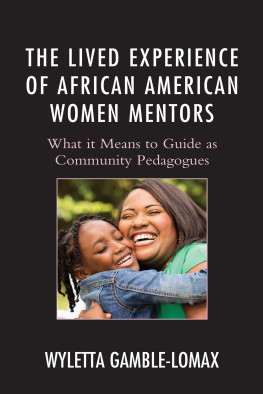

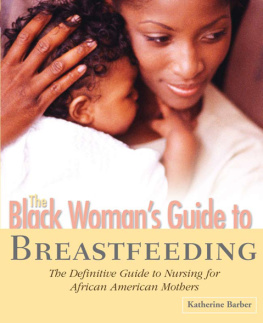
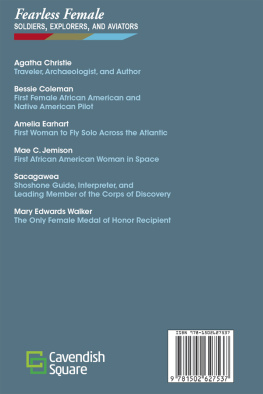
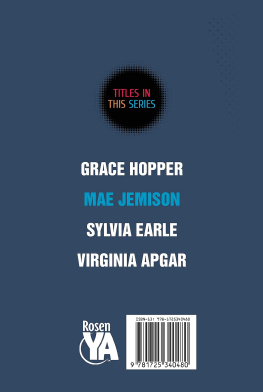
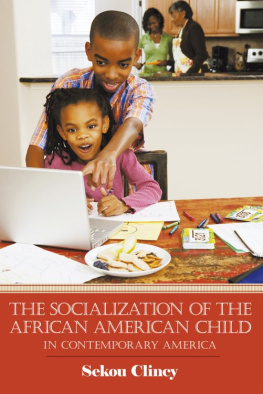
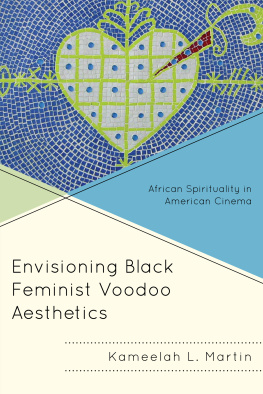
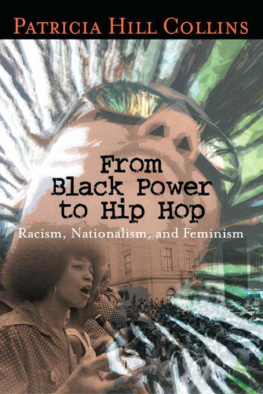
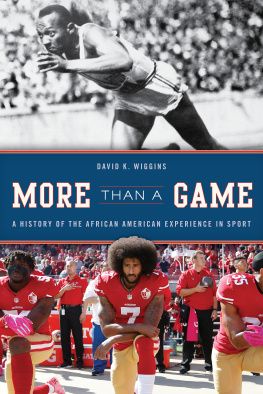

 The paper used in this publication meets the minimum requirements of American National Standard for Information SciencesPermanence of Paper for Printed Library Materials, ANSI/NISO Z39.48-1992.
The paper used in this publication meets the minimum requirements of American National Standard for Information SciencesPermanence of Paper for Printed Library Materials, ANSI/NISO Z39.48-1992.